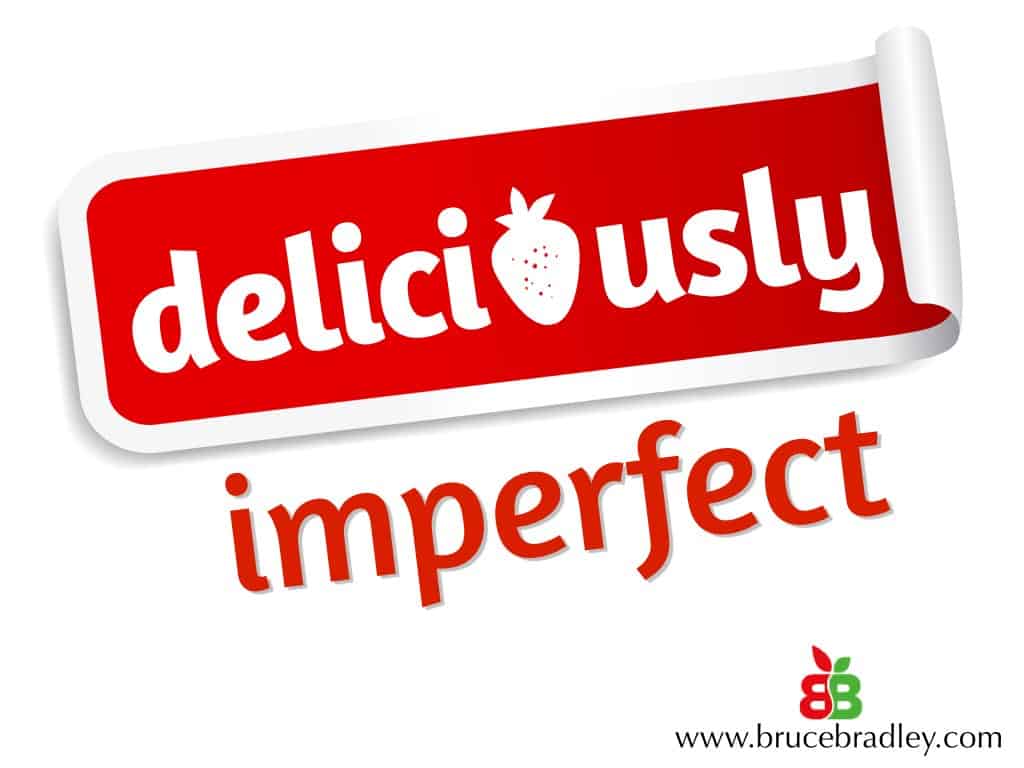
Last week someone asked me, “How perfectly do I have to eat to be healthy?” Little did that person know perfection is a hot button of mine … something that I have a long, troubled history with. But it’s no wonder people are concerned—there’s a lot of scary junk in our food that’s doing who knows what to our bodies. But do you have to eat perfectly to live a healthier life?
To make things more complicated there’s lots of conflicting advice out there. I recently read an article by a registered dietician who said we were all missing the mark. He went on to proclaim dietary guidelines that suggest at least half our plates be filled with fruits and veggies fall short. Rather, since fruits are nature’s candy, we need to focus on eating more veggies. While I totally agree that eating more vegetables is vitally important, I’m not sure how constructive it is to blow up the bridge that fruits can provide to healthier eating. But alas, the author of this blog post is young, has no kids, and may not realize how life doesn’t always go as you plan.
As much as I’d like to think I have complete control over my life, that’s an illusion (and you can’t even imagine how true this statement is in this very moment). Regrettably too often I’ve made perfection the goal, and it never ends well. So especially when it comes to food, I’ve decided I need to let go of my perfectionism and embrace being “deliciously imperfect.”
Although all of our situations are different the one thing I’m sure of is nobody lives in a perfect world. Here are just a few of the challenges I face in feeding my family perfect, healthy food all the time:
- I’m the father of a teenage son. For some of you, that’s all I need to say—you immediately get it. For those of you who don’t understand, let me explain. We live in a food culture that’s warped in so many ways. For teenage boys most of the food marketing messages take the form of eating lots of extreme, junked up food. Unfortunately unhealthy food and beverages have become yet another way teen boys express themselves and rebel.
- I’m a divorced dad, and while my son spends half his time with me, the rest of the time he’s with his mom and our two houses don’t share the same food values.
- My definition of healthy eating has changed over the years. For a long time it included plenty of “healthy” processed foods. Unfortunately we developed a whole host of bad habits that are really hard to change.
- Finally, if you have a teenager, you quickly learn that as important as food is to raising healthy kids, there are some bigger, more important battles to fight.
What does this mean for me and my family? Do I simply give up and throw in the towel with my son? No, but I’ve realized that gone are the days when I could literally control what’s on his plate for every meal. I’m no longer feeding a toddler, and my son’s out there in that big, wild world more and more. So while I don’t have the same control I once had, here are some approaches I think can work:
- Inspire through actions. I was always taught actions speak louder than words. I think that’s especially true when teaching your kids how to eat. While they may ignore or dismiss you in the moment, the example you set will take root and inspire them over time.
- Play to your strengths. I’m lucky my son has always liked fruit, salad, and some of the basic veggies like green beans, peas, and broccoli. To make sure he’s eating healthy I intentionally serve some options I know he won’t fuss about.
- Encourage healthy exploration, but don’t mandate it. When I started transitioning to eating real food I went too far at first. How many twelve year-olds do you know who are going to get excited about eating kale and greens? Not many! But if you start slow and encourage your kids to try a bite, you can definitely make progress and score some wins! Remember, this is a marathon, not a sprint.
- Stock up your fridge and pantry with real foods but realize a little junk here and there is okay. This summer my son pleaded, “Can’t we occasionally have some store-bought cookies and chips?” When I took a step back I realized he was totally right.
- Finally, don’t be afraid to discuss and share your food values with your kids. They listen a whole lot more than you might think.
To help bring these ideas to life in the coming months I’ll be sharing recipes, tips, and other information I’ve used in my home to make the transition to healthier eating. While I can promise you we’re not perfect, slowly we’ve made progress figuring out our home’s food values which include:
- Ditching the boxes, bags, and cans of processed food and eating REAL food
- Making veggies and fruit over 50% of our diet
- Choosing local, organic, and sustainable foods when possible, and
- Supporting the humane treatment of all farm animals
The bottom line is with time you too can discover your own food values, share them with your family, and embrace your own “deliciously imperfect” life! So please join me on this journey to learn more about what’s in your food and take some simple steps to living a happier, healthier life.
What are some of the challenges you face in feeding your family real food? How do you deal with them? Is food perfection your goal, or are you okay with being “deliciously imperfect”? Share your story in the comments … it helps us all feel better when we know we’re in this together! And if you have a question for me, please ask away! Together we can accomplish amazing things so let’s get out there and spread the spread the word about REAL food.
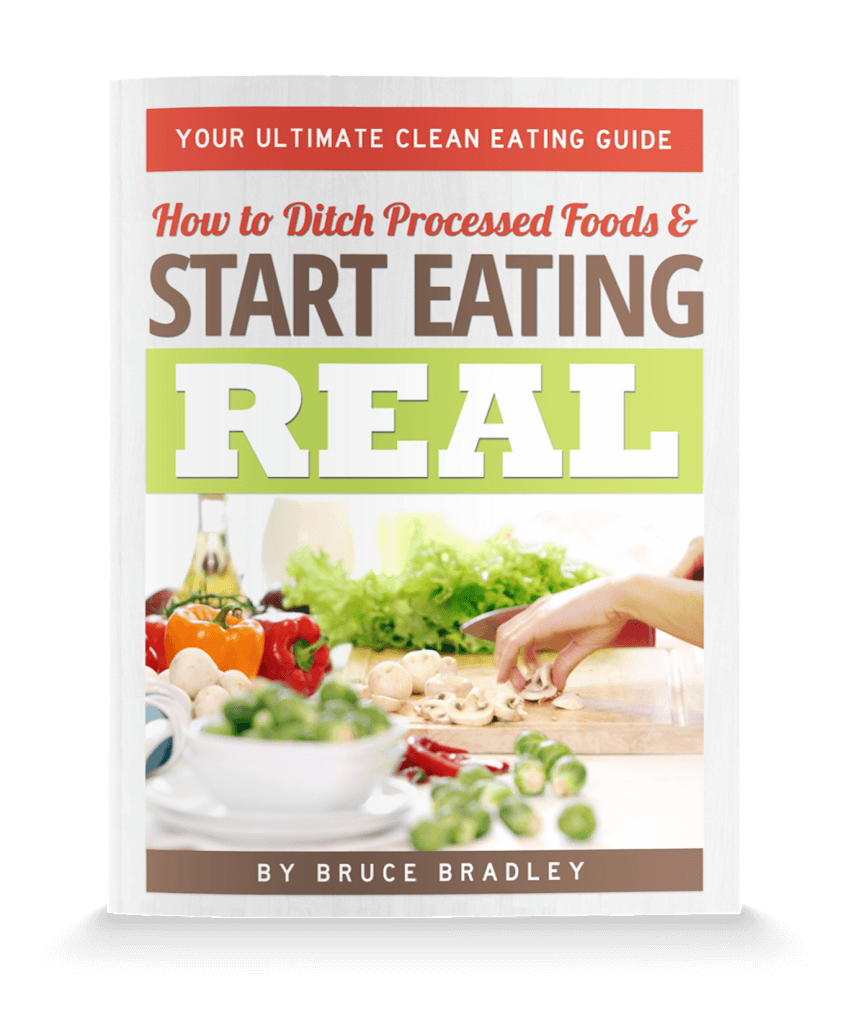
GET MY FREE BOOK NOW!
End the confusion! Learn what’s really in your food and how to take simple steps toward eating healthier!
EAT HEALTHIER TONIGHT!
If you enjoyed this article or recipe may I ask you a favor? Please share it with a friend. Why? Because together we can make a difference and help each other live happier and healthier lives. Thank you!

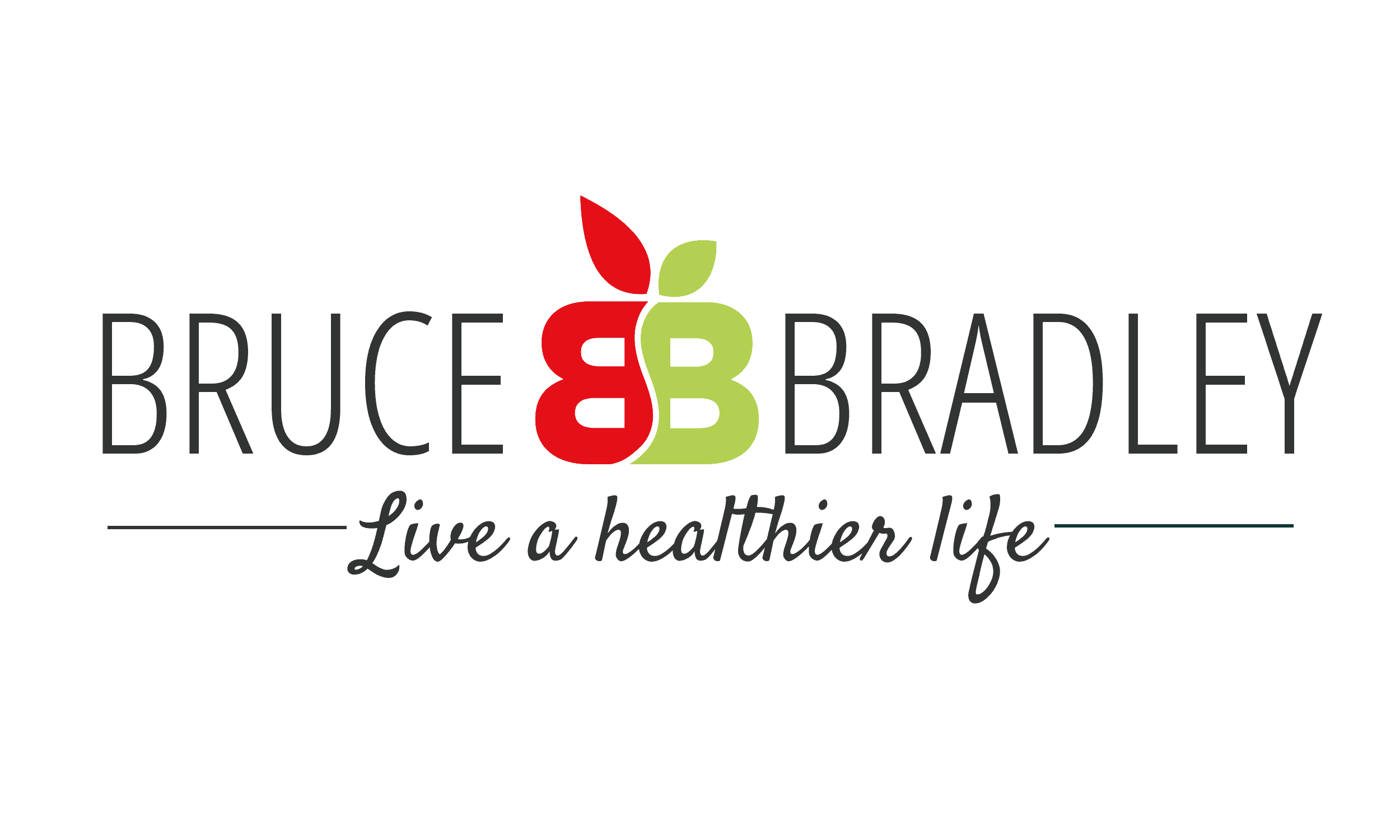



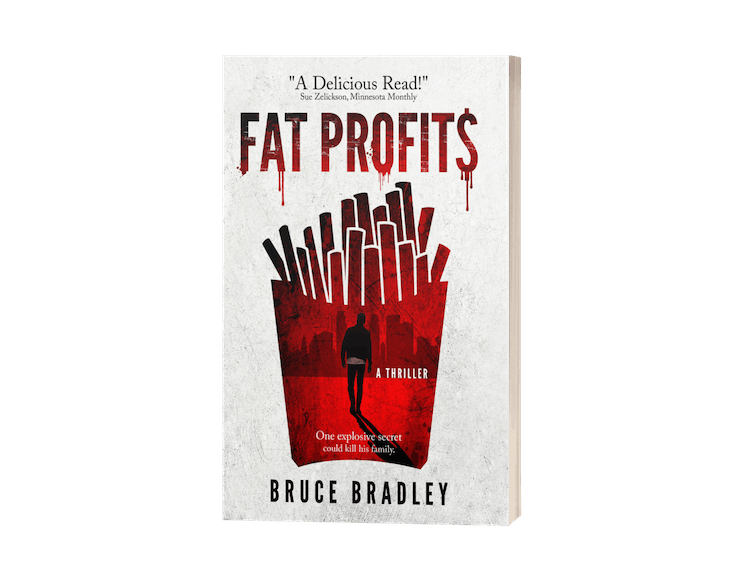
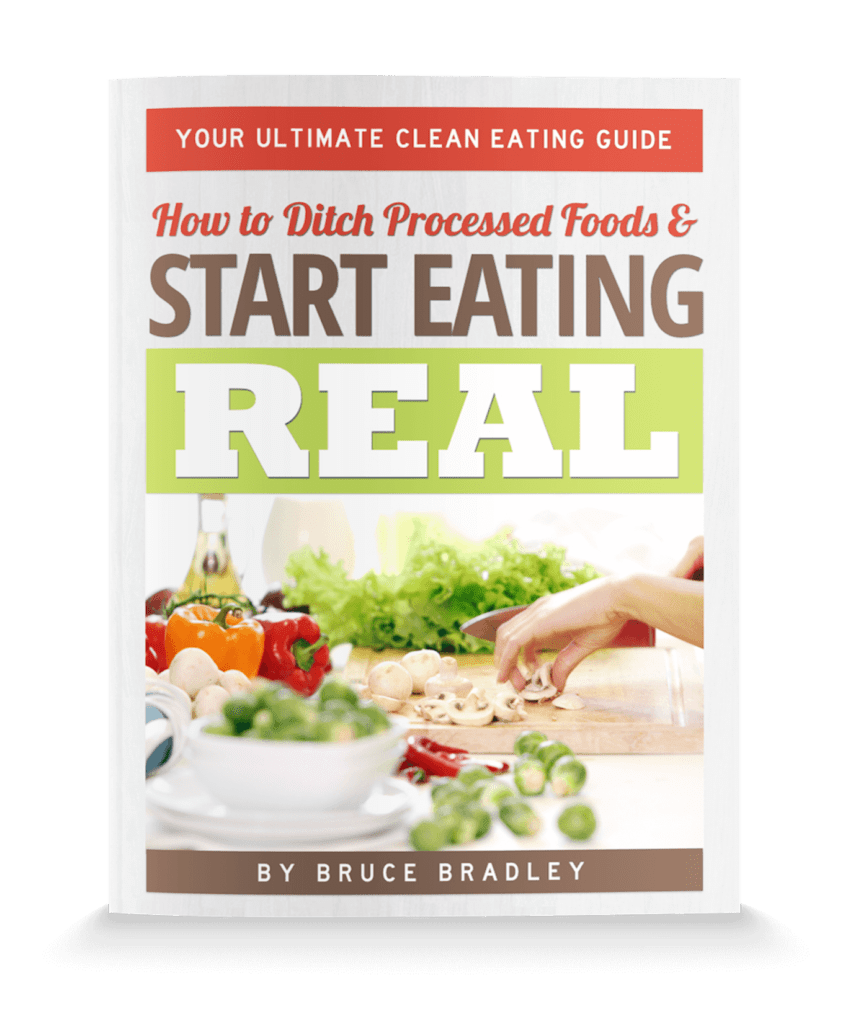
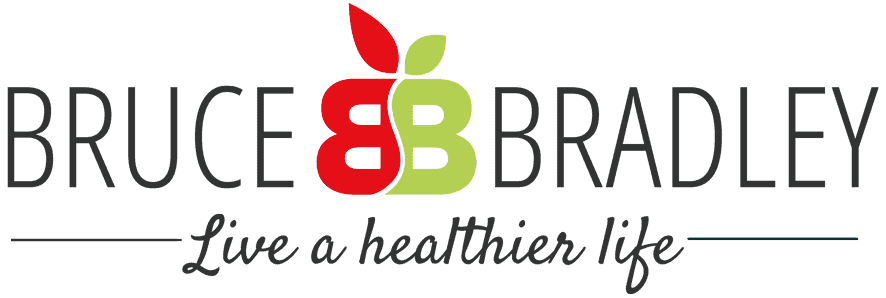
11 Responses
I have fallen into the trap of thinking I had to be perfect in my food choices and then feeling the guilt when I’m not, which turned out to be more of the time than not. And on top of that, every article you read points out some imperfection in your perfection so confusion brought on more guilt.
I’m very encouraged by the direction your website is going and being “deliciously imperfect” sounds delicious and healthy without the guilt. So I’m in and perhaps should change my “label” from “theorganicfanatic” to “thedeliciouslyimperfect” oh, but then that’s already taken!
Thanks for the article encouraging all of us who make food choices to “get real”.
Hey there, Cynthia. Great to see you on here and love your comment. I think once we let go of perfectionism, we can give ourselves permission for making healthy strides forward. Perfectionism comes from a place of shame, guilt or “shoulds”. Healthy striving comes from a place of “I want” or “I need”. To make real, long-term changes in how we eat, it’s got to come from that “I want”/”I need” place — at least that’s what I believe.
Cheers!
Bruce
When friends and family talk about wanting to improve eating habits I strongly encourage them to join a CSA farm or shop regularly at a farmers market. I worked for a local CSA the past several seasons and one of the joys of the job was watching people, kids especially, become interested and excited about the vegetables they picked up each week. Sharing prep and recipe tips and then hearing about their successes at the next pickup was such fun! Kids like to be involved with their food and take pride in choosing the “perfect” head of broccoli or the most colorful carrots or peppers and once the veg has been chosen, eating is the next logical step.
Hi Kathryn!
I totally agree with you. I joined my CSA in 2009, and it was one of the best decisions I made. For me, it really forced the issue of healthier eating. It’s easy to talk about wanting to eat healthier, but it’s another when this box full of veggies arrives every week. Certainly it takes some time, effort, and a decent learning curve, but 5 years later, I think I have a several go-to recipes for almost every veggie in my box! That’s progress.
Thanks for sharing your experience and for visiting my site!
Bruce
I, and others I’ve talked with, have found it more difficult to compost our CSA veggies than anything from the store or our gardens! Maybe it has to do with actually getting to know the folks doing the hard work of growing and harvesting! It does, somehow, compel one to eat those veggies!
Thank you for this. I try too much to be perfect as well. A little over a year ago, I became a wife and stepmother (they are 10 and 7), and have been fighting what feels like a losing battle over food ever since. And most food blogs are published by moms who aren’t dealing with blended families and have a higher level of success and “perfection” than I can ever expect to have. You have no idea how much I needed to read this today!
So glad this post came at the right moment for you. Thanks so much for visiting my site, and keep me posted on your progress. Hopefully I can help out along the way!
Cheers!
Bruce
Some years ago, in June I think it was, our family was gathered at the dinner table for a celebration of some sort. Our then 10-year-old, Emily, suddenly stood up, slammed her carrot down on her plate, and said in a loud, angry voice, “I’m not going to eat that carrot. That is not a real carrot!” As noted, it was June. We had recently run out of garden carrots. I store under straw through the cold months. Thus the carrots on our table were of the store-bought variety. Since our garden carrots are always sweeter and juicier than store-bought carrots, I jokingly referred to them as “real” carrots.
That said, I would say that, in general, it’s important to consume high quality, real produce grown in mineral-rich soil. Industrial farming furnishes produce dilute in mineral content. Consequently, one is obliged to consume greater quantities of it to enjoy the nutritional benefits. The same holds true for animals.
Love this story! And, I totally agree with your daughter!
I couldn’t agree more! Sadly, the corporations behind unhealthy foods like Monsanto will fight every GMO labeling bill to the bitter end. It makes one wonder why they would spend millions of dollars to avoid labeling their products if they knew there was nothing wrong with them being GMOs. With companies like Kellogg’s, Frito-Lay or even the generic store brands like Kroger, it is impossible to know simply by looking at the label what you are really getting. I’ve found however that a little Googling can go a long way when it comes to determining if a food is made from GMOs or if an animal product comes from humanely treated animals. Most companies flaunt their organic and humane association certifications, while others label their products with unregulated words like “Natural” with nothing to back it up, meaning it is most likely produced using GMO ingredients of some sort or another. Thanks for fighting the good fight Bruce! The more people that hear the testimony of credible individuals who have worked within the industry, the more they will start to wake up and no longer believe the marketing shoved down their throats.
I was a non believer and trusted that what I bought at the store was safe and er go healthy for me. But that was before my peptic ulcers, throwing up blood, and chronic anemia started running my life. I decided to just quit sugar, sodas, and all canned, boxed or bagged foods. to eat 55% raw and the rest cooked. after a year…. I no longer have to take ulcer medication, no more throwing up blood and my anemia (was 17 now a healthy 33.6). So what have I learned???? MODERATION….. I am still maintaining a healthy diet that fits my needs… no sugar, soda or the rest of anything that is GMO…. My energy level is wonderful, and I appreciate my good health. I am 59 weigh 130 lbs and do not lead a sedimentary life. Thanks for standing up for what is right and blowing your horn loudly to inform others of what is really going on. I heard you and am glad I listened!